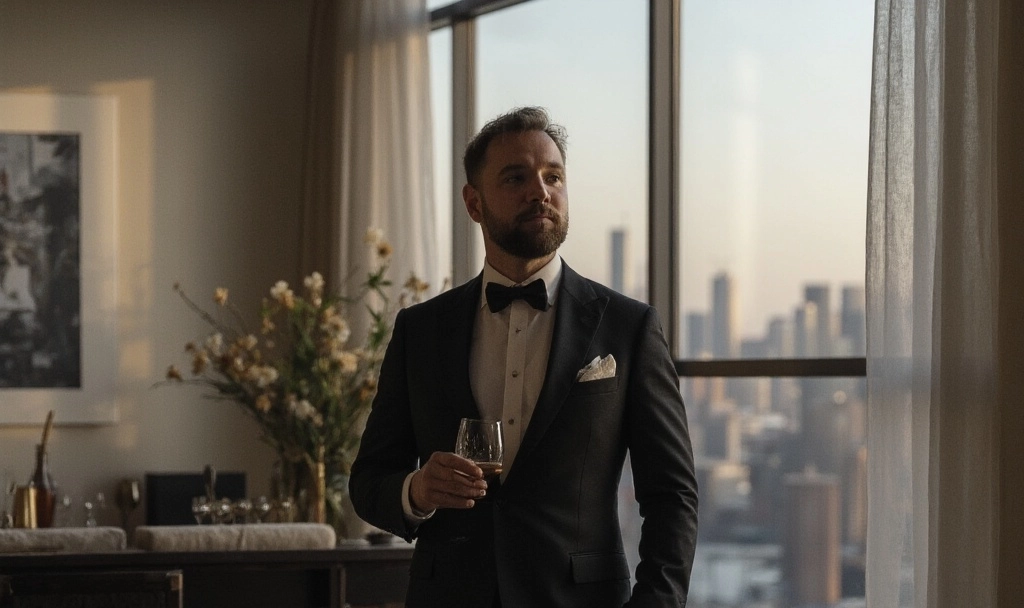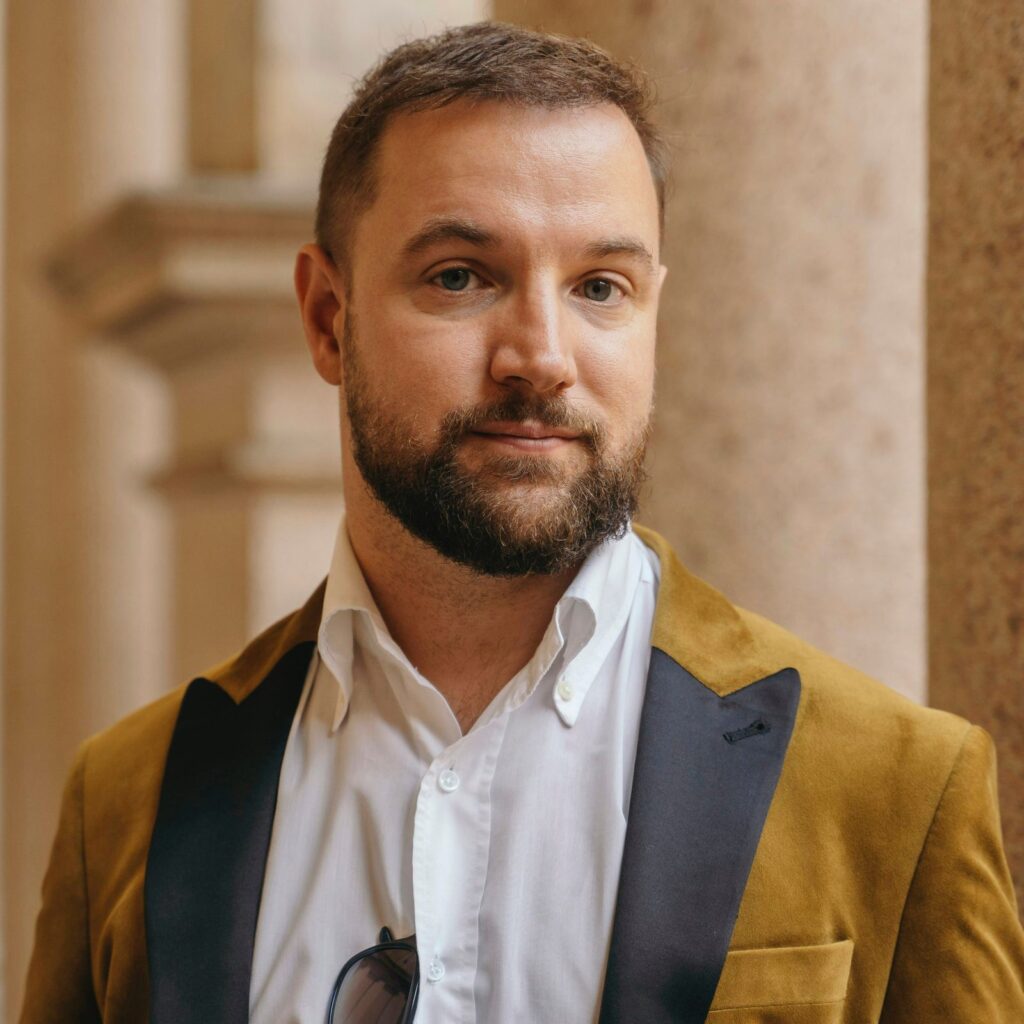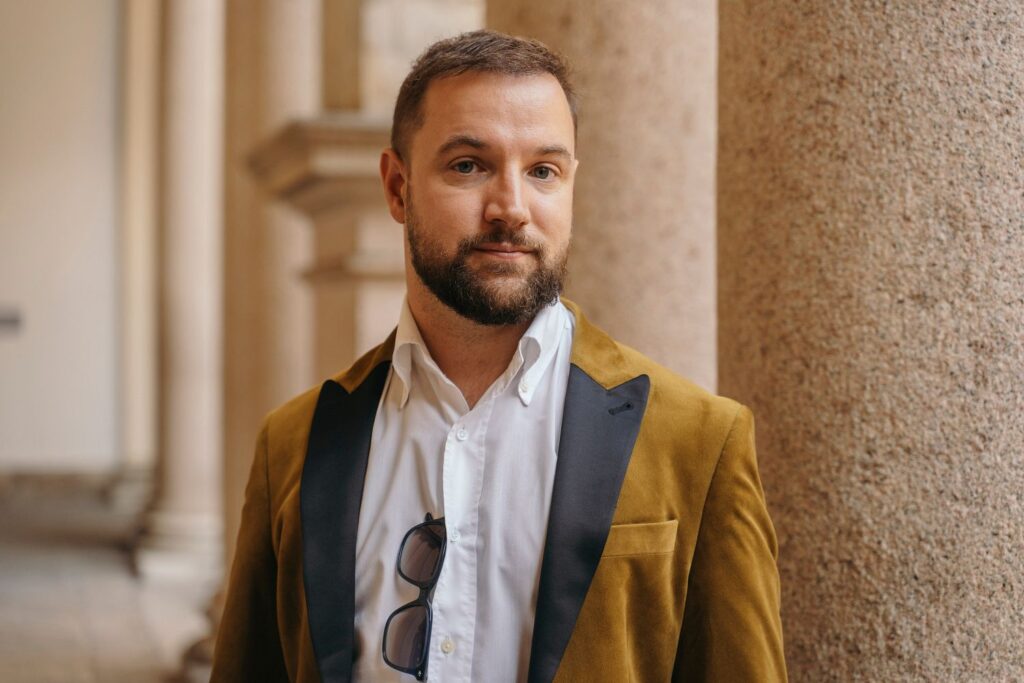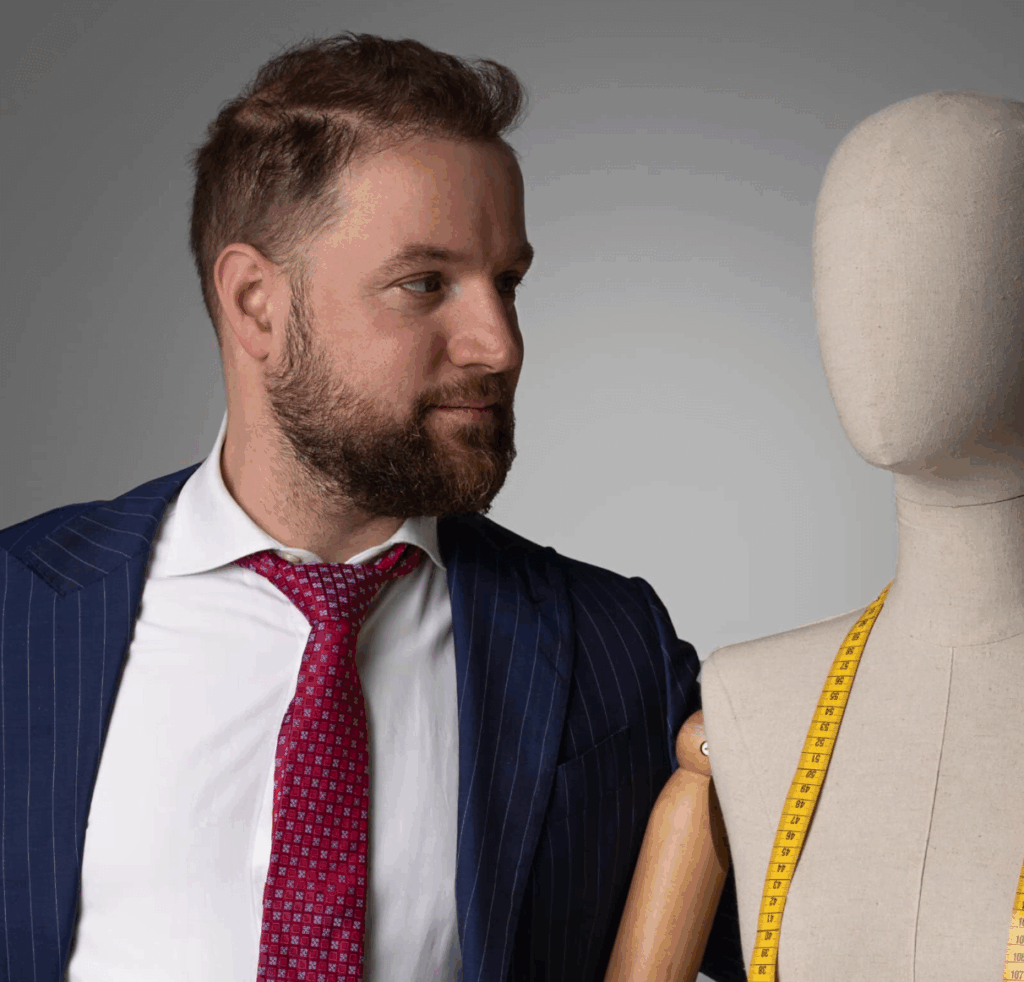Luxury marketing has become an art form where brands are no longer just selling goods. They are crafting entire worlds around rare experiences and emotional connections. More than 70 percent of luxury consumers say the emotional meaning of a brand outweighs its functional value. That sounds almost unbelievable in our product-obsessed culture. But here is what most people get wrong. The most powerful luxury brands do not succeed because of exclusive logos or expensive materials. They win by turning desire itself into a feeling you cannot buy anywhere else.
Table of Contents
- Defining Luxury Marketing: Key Characteristics And Concepts
- The Importance Of Branding In Luxury Marketing
- Strategies For Engaging High-Net-Worth Clients
- The Role Of Exclusivity And Scarcity In Luxury Marketing
- Digital Innovations Shaping Modern Luxury Marketing
Quick Summary
| Takeaway | Explanation |
|---|---|
| Luxury marketing builds emotional connections. | Focus on deep relationships rather than traditional selling. Create narratives that resonate with consumers on a personal level. |
| Exclusivity enhances perceived product value. | Limit availability to create desire. Scarcity transforms ordinary items into coveted symbols of status and achievement. |
| Engage high-net-worth clients with personalized experiences. | Tailor strategies to meet the unique preferences of affluent clients. Provide exceptional service that fits their lifestyle demands. |
| Brand storytelling conveys heritage and culture. | Develop rich narratives that elevate brand identities. This approach helps luxury brands communicate their unique essence and cultural significance. |
| Integrate digital technologies for immersive experiences. | Use innovations like AR and AI for personalized engagement. Create seamless online-to-offline interactions that maintain luxury brand exclusivity. |
Defining Luxury Marketing: Key Characteristics and Concepts
Luxury marketing represents a sophisticated approach to brand positioning and communication that transcends traditional product selling. Unlike conventional marketing strategies, it focuses on creating profound emotional connections and exclusive experiences that transform products into symbols of aspiration and personal identity.
The Essence of Luxury Brand Positioning
At its core, luxury marketing is about crafting narratives that elevate products beyond their functional utility. According to research in the Journal of Consumer Marketing, luxury brands differentiate themselves through several critical dimensions:
- Emotional Value: Creating deep psychological connections that resonate with consumers
- Heritage and Craftsmanship: Emphasizing historical significance and exceptional quality
- Symbolic Status: Representing social prestige and personal achievement
These brands carefully construct an ecosystem where purchasing is not merely a transaction but an entrance into an exclusive world.
![]() The marketing approach centers on communicating intangible attributes that make products desirable: prestige, rarity, and personal transformation.
The marketing approach centers on communicating intangible attributes that make products desirable: prestige, rarity, and personal transformation.
Strategic Emotional Engineering
Luxury marketing operates on a nuanced understanding of consumer psychology. Brands invest significantly in understanding how their products make customers feel rather than simply highlighting technical specifications. This means developing marketing strategies that speak to aspirational desires, personal identity, and social positioning.
The strategic process involves meticulously curating every touchpoint of brand communication. From visual aesthetics to storytelling, each element is designed to reinforce the brand’s premium positioning. Consumers are not just buying a product they are investing in an experience, a statement, and a lifestyle.
Below is a table summarizing the core dimensions that set luxury brands apart as described in the article.
| Dimension | Description |
|---|---|
| Emotional Value | Deep psychological connections that resonate with consumers |
| Heritage and Craftsmanship | Emphasizes historical significance and exceptional quality |
| Symbolic Status | Represents social prestige and personal achievement |
| Prestige | Intangible value elevating products to desirable status symbols |
| Rarity | Scarcity and uniqueness creating heightened consumer desire |
| Personal Transformation | Products as catalysts for lifestyle and identity evolution |
Key considerations in luxury marketing include:
- Maintaining strict brand exclusivity
- Creating immersive brand experiences
- Developing personalized engagement strategies
- Communicating exceptional quality consistently
Understanding these principles transforms luxury marketing from a sales technique into a sophisticated art of creating desire and emotional connection.
The Importance of Branding in Luxury Marketing
Branding serves as the foundational cornerstone of luxury marketing, transforming products from mere commodities into powerful symbols of identity, aspiration, and social significance. In the luxury sector, branding goes far beyond visual logos or marketing campaigns it represents a comprehensive narrative that communicates a brand’s unique essence and cultural value.
Creating Emotional Resonance
Luxury brands understand that effective branding is fundamentally about creating deep emotional connections with consumers. Research on brand identity demonstrates that successful luxury brands construct intricate personas that transcend traditional product marketing. These brands do not simply sell items they sell experiences, emotions, and social positioning.
Key elements of luxury brand emotional engineering include:
- Storytelling: Developing rich historical narratives that communicate heritage
- Symbolic Meaning: Constructing brand identities that represent more than product functionality
- Cultural Significance: Positioning brands as cultural markers of taste and sophistication
Strategic Brand Identity Development
Luxury brand identity requires meticulous architectural planning. Every visual and communication element must strategically reinforce the brand’s premium positioning. This involves creating a holistic brand ecosystem where each touchpoint communicates exclusivity, quality, and aspirational value.
The process demands:
- Consistent visual language across all platforms
- Precise tone of communication
- Carefully curated brand experiences
- Thoughtful representation of brand values
Brands that successfully navigate this complex landscape transform themselves from product manufacturers into cultural institutions. They become more than commercial entities they become symbols of lifestyle, personal achievement, and social status.
Ultimately, branding in luxury marketing is an art form that requires deep psychological understanding, cultural awareness, and an exceptional ability to communicate intangible value propositions that resonate with discerning consumers.
Strategies for Engaging High-Net-Worth Clients
Engaging high-net-worth (HNW) clients requires a sophisticated, nuanced approach that goes beyond traditional marketing techniques. These discerning individuals demand exceptional experiences, personalized interactions, and a level of service that recognizes their unique status and expectations.
Understanding the HNW Client Mindset
Successful engagement begins with profound psychological insights. Research from INSEAD Knowledge reveals that ultra-high-net-worth individuals seek more than just products they desire comprehensive experiences that reflect their personal identity, social standing, and sophisticated lifestyle preferences.
Key psychological considerations include:
- Exclusivity: Providing access to rare and unique offerings
- Personal Recognition: Demonstrating genuine understanding of individual preferences
- Tailored Experiences: Creating customized interactions that feel individually crafted
Precision in Digital and Personal Engagement
Luxury brands must develop multifaceted engagement strategies that seamlessly blend digital sophistication with exceptional personal service. This requires creating integrated communication ecosystems that anticipate and exceed client expectations across multiple touchpoints.
Critical engagement strategies encompass:
- Developing highly personalized digital communication channels
- Implementing advanced client relationship management systems
- Creating intimate, invitation-only experiences
- Providing dedicated relationship managers
The goal transcends traditional transactional relationships.
 HNW clients expect brands to understand their complex lifestyle requirements, anticipate their unspoken needs, and deliver experiences that feel simultaneously exclusive and intimately personal.
HNW clients expect brands to understand their complex lifestyle requirements, anticipate their unspoken needs, and deliver experiences that feel simultaneously exclusive and intimately personal.
This table compares different engagement strategies used to connect with high-net-worth clients, highlighting both digital and personal approaches outlined in the corresponding section.
| Engagement Strategy | Key Features |
|---|---|
| Personalized Digital Communication | Tailored messages, individualized digital platforms |
| Advanced Client Relationship Management | Data-driven insights, CRM systems, relationship managers |
| Intimate, Invitation-Only Experiences | Exclusive access, private events, bespoke services |
| Dedicated Relationship Managers | Personalized service, anticipation of client needs |
| Integrated Communication Ecosystems | Seamless interaction across digital and personal touchpoints |
Ultimately, engaging high-net-worth clients is an intricate art form that demands exceptional emotional intelligence, strategic communication skills, and an unwavering commitment to understanding the nuanced expectations of truly discerning consumers.
The Role of Exclusivity and Scarcity in Luxury Marketing
Exclusivity and scarcity represent fundamental psychological mechanisms that elevate luxury marketing from simple product selling to an art of creating profound consumer desire. These strategies transform products from commodities into rare, coveted symbols of social distinction and personal achievement.
Psychological Foundations of Exclusivity
Research in consumer psychology reveals that exclusivity triggers complex psychological responses that significantly enhance product perception. When brands strategically limit availability, they simultaneously increase perceived value and stimulate consumer motivation through a phenomenon known as psychological reactance.
Key psychological triggers include:
- Perceived Rarity: Creating intense consumer fascination
- Social Signaling: Positioning products as markers of unique status
- Emotional Investment: Generating deeper brand connection
Strategic Implementation of Scarcity
Luxury brands meticulously engineer scarcity through multiple sophisticated approaches. This involves carefully controlling product availability, creating limited edition collections, and developing intricate distribution strategies that maintain an aura of desirability.
Critical scarcity implementation techniques encompass:
- Producing strictly limited production runs
- Developing invitation-only product releases
- Creating numbered or individually serialized items
- Establishing rigorous selection criteria for product acquisition
The ultimate objective transcends mere sales tactics. By cultivating an ecosystem of calculated unavailability, luxury brands transform products into extraordinary experiences that represent more than material possessions they become cultural artifacts symbolizing individual taste, sophistication, and social achievement.
Successful exclusivity strategies require an intricate balance between maintaining brand accessibility and preserving an aspirational mystique that continuously fuels consumer imagination and desire.
Digital Innovations Shaping Modern Luxury Marketing
Digital technologies are fundamentally transforming luxury marketing, compelling brands to reimagine traditional engagement strategies and create immersive, technologically advanced consumer experiences. The convergence of digital innovation and luxury represents a profound paradigm shift that demands sophisticated, adaptive approaches.
Technological Landscape of Luxury Marketing
Research examining digital marketing strategies reveals that luxury brands are leveraging advanced technologies to personalize consumer interactions and build deeper emotional connections. Brands like Gucci have pioneered innovative digital initiatives that integrate big data, augmented reality, and personalized customer experiences.
Key technological innovations include:
- Augmented Reality: Creating immersive virtual product experiences
- AI-Powered Personalization: Developing hyper-targeted marketing approaches
- Advanced Data Analytics: Understanding consumer behavior with unprecedented precision
Strategic Digital Engagement Frameworks
Luxury brands are developing comprehensive digital ecosystems that transcend traditional marketing boundaries. This involves creating seamless online-to-offline experiences that maintain the brand’s exclusive essence while embracing technological accessibility. Learn more about brand innovation in our guide on strategic brand transformation.
Critical digital engagement strategies encompass:
- Implementing omnichannel marketing approaches
- Developing interactive digital platforms
- Creating personalized digital storytelling experiences
- Utilizing social media for intimate brand narratives
The ultimate objective is to transform digital platforms from mere transactional spaces into immersive brand experiences that capture the imagination, preserve the brand’s mystique, and provide unprecedented levels of personalization and engagement.
Elevate Your Luxury Brand With Psychology-Driven Marketing Strategies
Are you realizing that traditional marketing just doesn’t work in the luxury sector? As explored in “Understanding Types of Luxury Marketing: A Comprehensive Guide,” brands today face challenges far beyond standard selling. The article revealed the critical need for exclusivity, narrative, and deep emotional connection to engage high-net-worth clients and stand out through scarcity, personalization, and innovation. These are not just buzzwords—they are essential for success in a demanding luxury market, where your brand needs both authenticity and psychological insight to truly connect.

Take your next step toward real competitive advantage. Partner with Corrado Manenti and unlock marketing solutions grounded in consumer psychology and expert knowledge of the fashion and luxury space. Discover how our innovation-focused approach can help your brand craft irresistible stories, build emotional value, and embrace digital strategies that keep you ahead. Visit Corrado Manenti’s main site now to create experiences that resonate with your most discerning clients before your competitors do.
Frequently Asked Questions
What is luxury marketing?
Luxury marketing is a sophisticated approach that focuses on creating emotional connections and exclusive experiences, transforming products into symbols of aspiration and personal identity rather than merely selling them.
How does emotional value influence luxury marketing?
Emotional value plays a critical role in luxury marketing by creating deep psychological connections that resonate with consumers, making them feel a sense of prestige, rarity, and personal transformation through their purchases.
What strategies are effective for engaging high-net-worth clients?
Effective strategies include providing tailored experiences, developing personalized engagement strategies, and creating immersive brand experiences that cater to the specific lifestyle and expectations of high-net-worth individuals.
Why is exclusivity important in luxury marketing?
Exclusivity enhances the perceived value of products, triggers consumer desire, and establishes social signaling, positioning luxury items as markers of unique status and achievement in the eyes of discerning consumers.
Recommended
- Come Sviluppare una Strategia di Produzione Basata sulla Psicologia del Consumatore: La Guida Completa al Marketing delle Aspirazioni nella Moda – Corrado Manenti
- Come Sviluppare una Strategia di Produzione Basata sulla Psicologia del Consumatore: La Guida Completa al Marketing delle Aspirazioni nella Moda – Corrado Manenti
- The seven ways to launch your collection (AND your brand) on the market – Corrado Manenti
- Innovazione nei Brand Storici: Un Imperativo per la Sopravvivenza nel 2025



